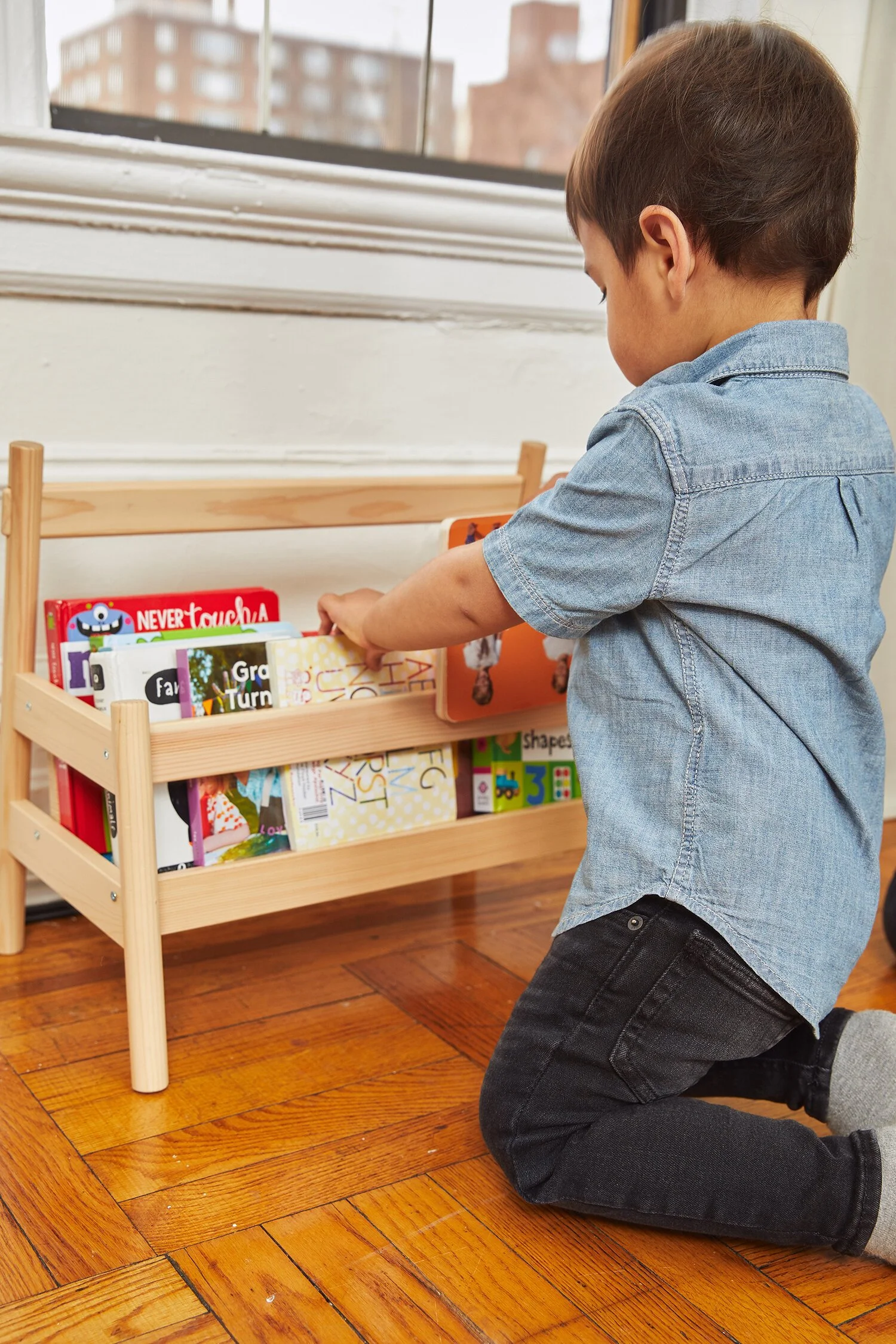5 Ways We Get Our Toddler to Clean Up and Do Chores
We want a tidy and orderly home but, with a toddler, that can feel nearly impossible. So to make it easier on ourselves, we’re leaning into our toddler’s innate willingness to help by having him pitch in on the housework-- all without bribing him or forcing him to put away his books.
Here are the five ways we encourage our 21-month-old toddler to do chores…
1. Model the behavior you want your toddler to repeat.
While it would be so much easier and efficient to tidy up while Lee’s asleep (or even better, out of the house), it’s important for Lee to observe us cleaning up altogether. Seeing us all pitching in to fold the laundry sets the precedent that we are all members of the household and therefore keeping it in good working order is our family’s collective responsibility. This seems like a huge concept for a little mind to grasp, but they surprisingly will understand that this work is family work.
2. Fold clean-up time into your routine.
Routines are deeply important to babies and especially toddlers. Clear patterns to their day help them feel secure and safe, because they know what to expect and, in this particular instance, understand what is expected of them: We’re done playing, so I need to put away my toys.
Consider establishing set points in your toddler’s day and routine for cleaning up: before meals, before nap and bedtime, or before heading to the playground. Layering in a clean-up time makes it an integral part of your routine and more predictable for your toddler.
3. Designate an accessible place for your toddler’s things.
A core principle of Montessori is, “A place for everything and everything in its place.” While this may sound rigid, it’s immensely helpful to your toddler and ultimately you; if your child has a toy and they don’t know where to return it, they’re likely to just drop it wherever.
To thwart that instinct of, “I don’t know where this goes, so I’m just going to put it here,” organize your child’s belongings so they have a clear “home.” Your little one will soon recognize where particular items are stored-- towels are in the kitchen, puzzles live on this shelf, books go on the bookcase-- to put away their belongings independently.
On a related note, it’s important for these spaces to be within your toddler’s reach (like a low shelf, in a closet with a knob they can turn or even a cleared area on the floor), so they can retrieve and return items independently.
4. Remain patient and fight the urge to step in and help.
The cruel irony is that, in order to get your toddler to help you clean up, they’re likely to make a bigger mess for you to clean up. In Lee’s efforts to wipe up some spilled milk, he sometimes unspools the entire paper towel roll. Or in his eagerness to sweep up Cheerios, he just brushes them all over the kitchen.
It is sometimes painful to witness, but I have to remind myself that Lee is genuinely trying to help. I need to back off and let him practice this skill-- even if it’s slowly killing me inside-- in order for him to actually be helpful once he masters how to use his dustpan.
5. Show appreciation.
Your toddler does not expect much in return for their help. In fact, negotiating, “If you clean up your toys, I’ll give you a cookie,” can backfire on us parents as it undermines a toddler’s innate desire to help. Instead, recognize their efforts with a warm, “Thank you for putting your napkin in the garbage!” which feels like a rich reward to your little helper.
If you’re interested in learning more about the psychology behind these suggestions and pointers on how to motivate your toddler, check out this article from Psychology Today: Toddlers Want to Help and We Should Let Them.

